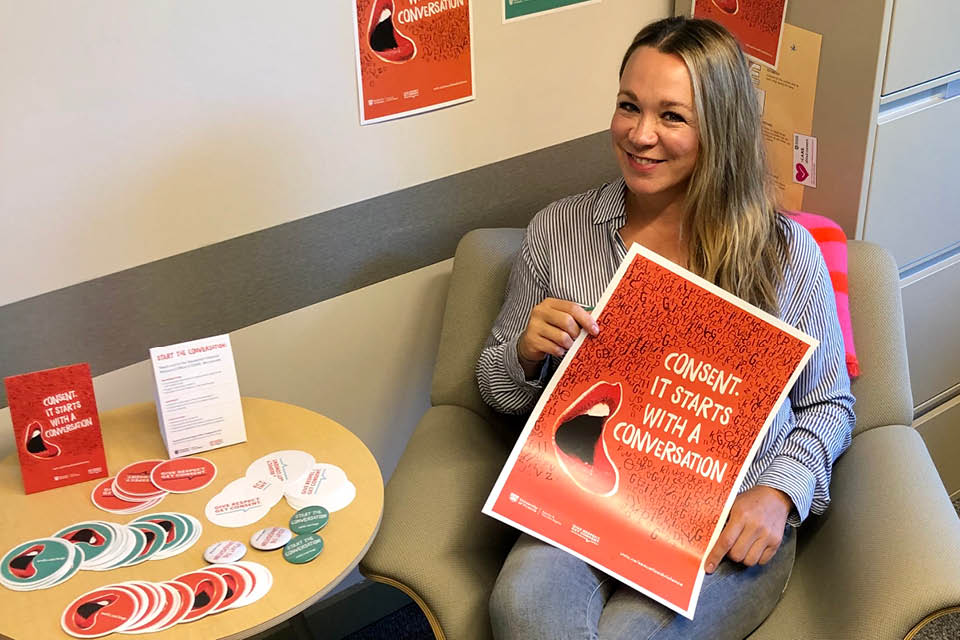Starting the conversation about consent

You can’t miss the big mouth. And that’s the point of UVic’s Consent—it starts with a conversation campaign kicking off Sept. 1. Featured on social media, posters, stickers and postcards across campus, it’s a mouth that roars with a simple but effective message about consent, says Leah Shumka, sexualized violence prevention coordinator in the office of Equity and Human Rights.
“Consent isn’t just a tick-box that gets checked,” says Shumka. “Consent is a conversation, one that is ongoing and goes hand in hand with respect.”
While the image may be provocative to some, its intent is to show the positive ethos of sexuality and demonstrate that mutual respect is the basis for exploring and building rewarding relationships and intimate experiences.
“We have created a campaign that grabs attention, stands out and has a cool factor to engage students and make them curious,” says Shumka. Raising the curiosity factor aims to drive students, staff and faculty to further educate and inform themselves by visiting the Sexualized Violence Prevention website, uvic.ca/sexualizedviolence. For students, the aim is for them to register for the Tools for Change workshop, which equips them with skills to have the conversation—about sexualized violence, about consent, and about prevention. The in-person workshop is peer-led, interactive, and provides students with opportunities to practise their skills and speak candidly with one another. In-person workshops, which are a partnership between Equity and Human Rights, are scheduled for Sept. 12, 17, 24 and Oct. 10 and 22. Students are encouraged to register at uvic.ca/toolsforchange
“Consent as a term, as a concept, has entered mainstream vernacular,” says Shumka. But while awareness about consent has risen considerably in the #MeToo era, people are still becoming familiar and comfortable with practising and using consent as part of their everyday social interactions.
Another important component of the consent campaign is a new online version of the Tools for Change workshop, which will be piloted this fall in residence, as well as a new Quick Reference Guide: Sexualized Violence Prevention and Response at UVic for staff and faculty. The guide provides information on how to respond to a disclosure, what to know in terms of confidentiality obligations, as well as prevention strategies in the workplace.
The guide will soon be available in faculty offices across campus and can be requested through Equity and Human Rights and the SVP website.
UVic’s Sexualized Violence Resource Office in Sedgewick C119 offers such services and resources as:
- Confidential information, advice and assistance for all students, staff and faculty;
- Support, with options to disclose, file a formal report, and access to on and off-campus resources and direct referrals;
- Education, through student workshops, faculty and staff training and information about additional UVic prevention programs.
For more information visit the UVic Sexualized Violence website.
Photos
In this story
Keywords: administrative





